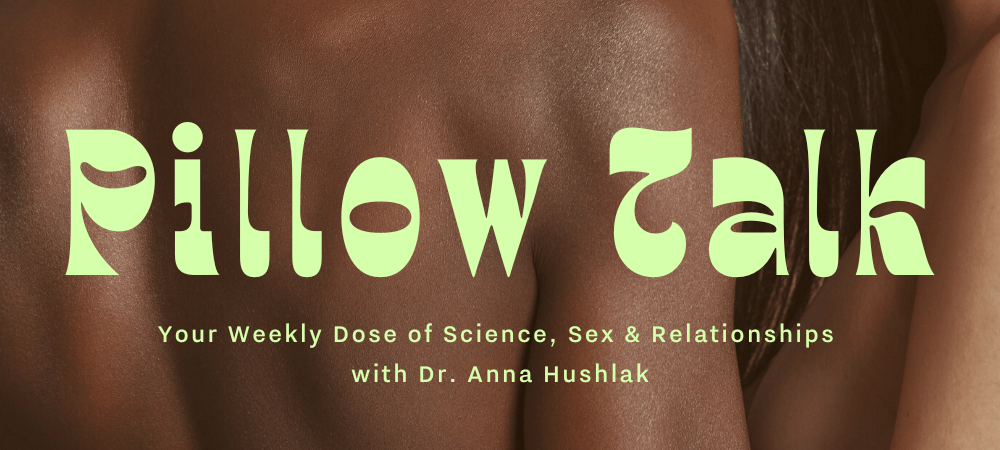

Hi crew! 👋
Here’s your weekly dose of Pillow Talk - your 5 minute read on how to have a healthy, confident and pleasurable life. Sticking to the Intimacy pillar, I want to take this week to emphasize the importance of solo intimacy. After all, the most important relationship you’re ever gonna have is the one you have with yourself. What are rituals or protocols do you have in place to prioritize and take care of you?
Personal share here. I’ve spent the last couple years researching how to live forever(ish) (adding the ‘ish’ as it would actually suck to live forever). Alongside my longevity research, I’ve also been investigating how to make sure that life is of a certain quality or vitality. There are a handful of levers to pull on that hit both longevity and vitality, a major one being sleep. Plus, we also know that for many of us, feeling tired vs. energized plays a massive role in our relationships and our sex lives.
It’s gonna be tough for me to share all the research around the importance of sleep in 5 minutes so instead, I’m going to focus on the protocols and drop resources below.
tl;dr sleep is basically in the top 3 most important things you can do to take care of you.
I’m also fully aware that if you’ve got kids and/or are a shift-worker, some of these might be tricky. However, try your best to focus on the protocols within your control and let go of those that aren’t.
Sleep optimization protocols
Wake up at the same time every day, including weekends, and go to bed when you first start to feel tired. Try not to vary this by more than 30-60 minutes.
Make your bedroom cool (between 15.6-19.4 degrees Celsius depending on whether you run hot or cold), dark, and quiet, White noise, e.g. a background fan or sleep music, can also help with this, especially if you share your bed with someone.
Avoid caffeine 8-12 hours before bed. Also stay clear of nicotine and alcohol as these can also disrupt your sleep cycle.
Avoid eating 2-3 hours before bed. Eating close to bed affects digestion, increases likelihood of gastrointestinal reflux, and impacts time to fall asleep & restlessness throughout the night.
Increase exposure to natural light with 0-60 minutes of waking up. Aim for a minimum of 10 mins on sunny days, 20 minutes on cloudy days and 30-60 minutes on really overcast days. Looking through a window doesn’t count 😉 and avoid sunglasses if you can.
Avoid screens before bedtime. Exposure to blue light can disrupt the body's production of melatonin, so avoid using phones, tablets, or computers for at least an hour before bedtime. Putting ‘em away also can help create more partnered intimacy.
Likewise, avoid bright overhead lights between 10pm-4am. I personally turn down the overheads and use softer lighting from 4pm onwards.
Nap effectively. Many of us struggle with napping because we get ‘em wrong. Aim to nap for 20-30 minutes (never more than 90 mins), 1pm-3pm if you can, and avoid napping too close to bedtime. Even if you don’t fall asleep, take the restorative time as a win.
1 Thing to Try This Week
Choose 1 protocol from above and try it out this week.
2 Questions to Ponder
Over the past month, on a scale of 1-5 (1 = low, 5 = high), how much have I prioritized my sleep?
How am I different when I’m well-rested? Beyond sleep, what else do I need to feel good in how I show up for myself and for others?
3 Read/Watch/Listens
📚 Dr. Matt Walker’s Why We Sleep: The New Science of Sleep and Dreams. This book will change everything you thought you knew about sleep. It is a giant read though. For a shorter summary here are Dr. Walker’s 6 tips for sleep.
🎧/👀 Master Your Sleep & Be More Alert by Andrew Huberman and Huberman Lab
👀 Dr. David Sinclair - How to Hack Your Sleep

That’s it for this week.
Good dreams and positive 💤s your way,

p.s. If you’re looking to improve your sex and relationship lives and want to get started ASAP, don’t forget to check out our courses here.
p.p.s. If you want a daily dose of science-based tips, follow us on the ‘gram (and join the other 50K folx who already do!)
